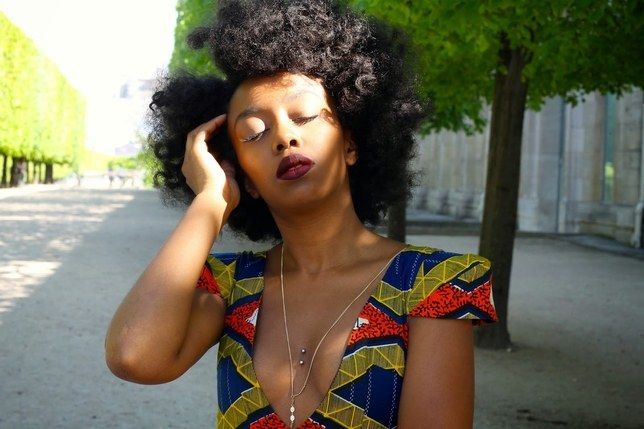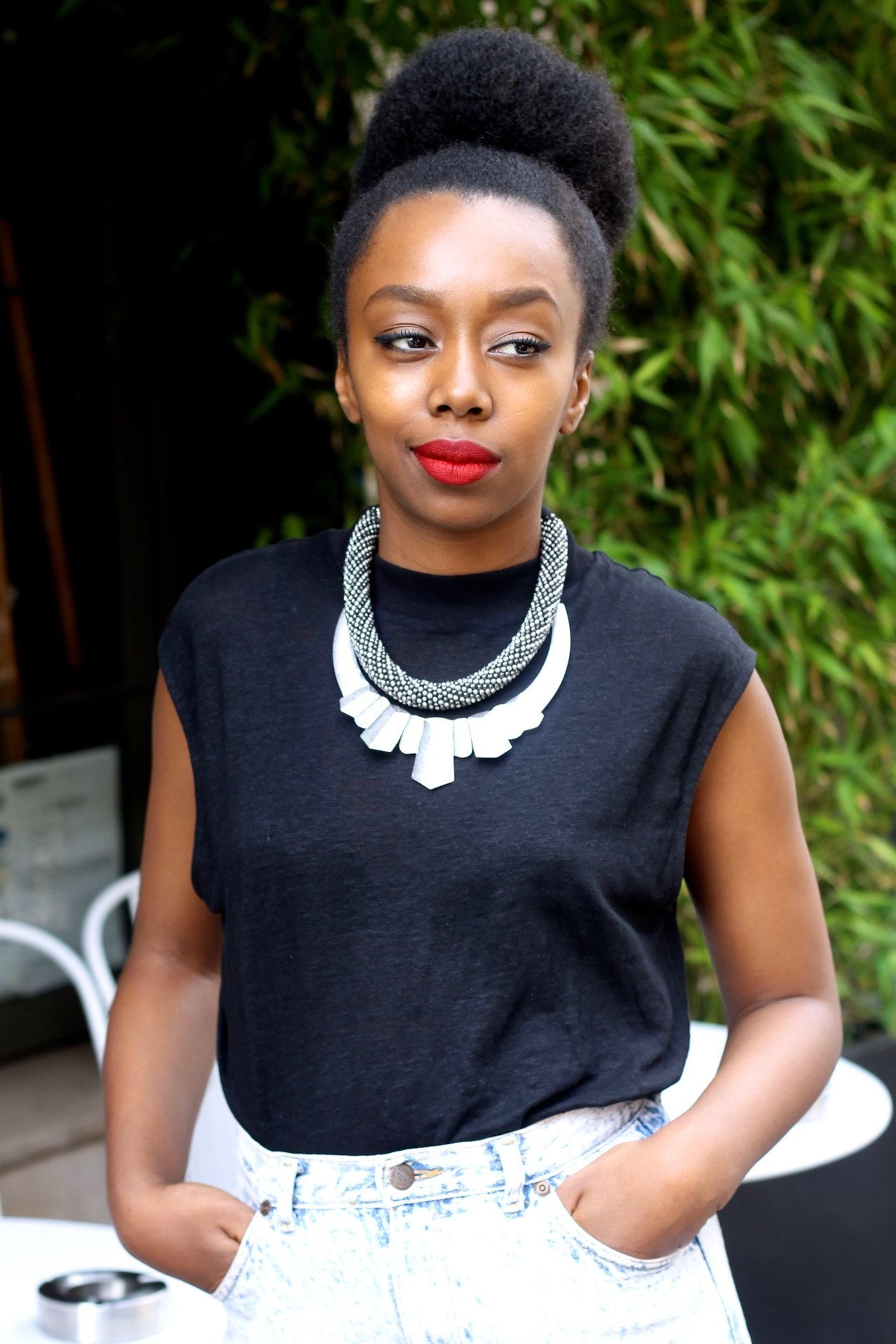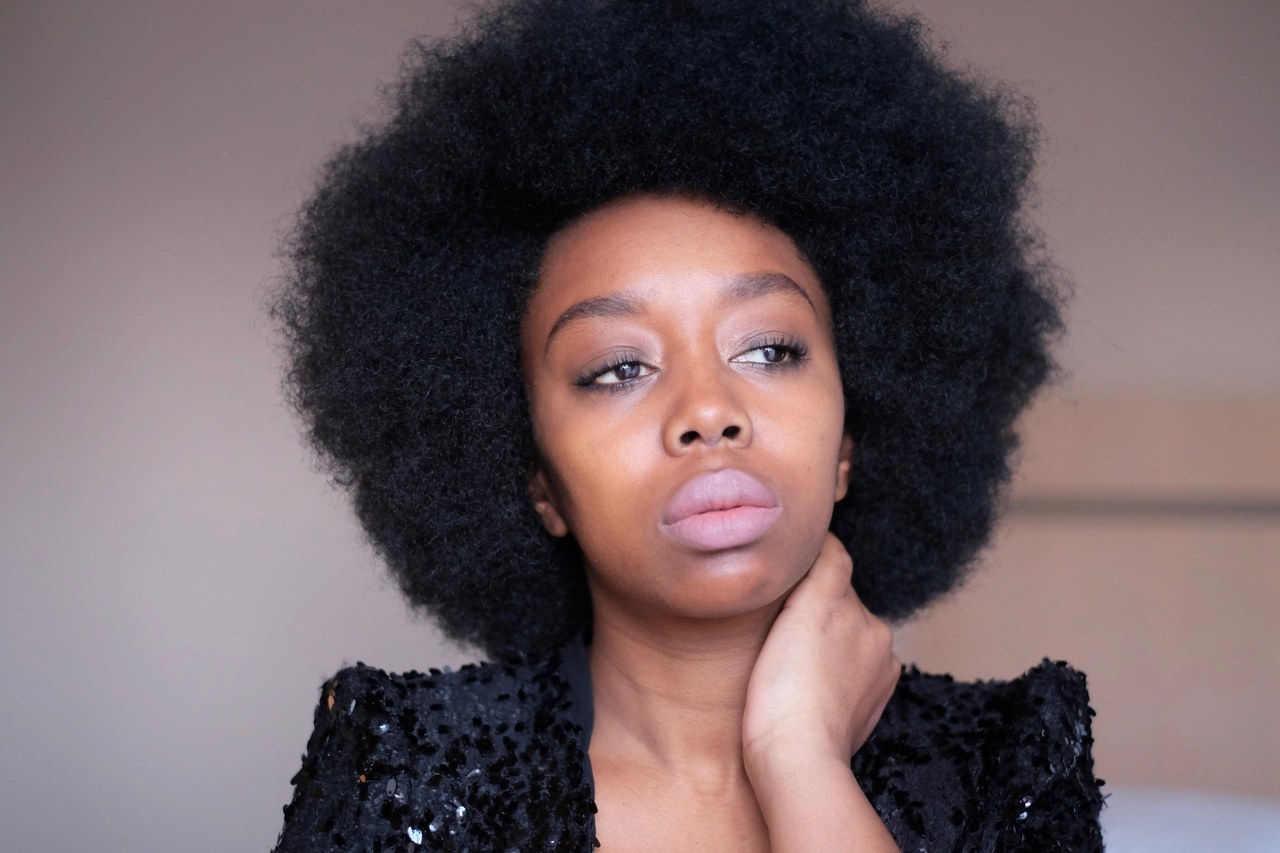What ‘French-Girl Beauty’ Means If You’re a Woman of Color

The French girl as a style and beauty icon is inescapable, aspired to, and everywhere we look. At its core, the global obsession makes sense. The allure of effortless beauty and chic minimalism that make up the French-girl aesthetic are as conceptually captivating as the iconic women who encapsulate it. Brigitte Bardot, Caroline de Maigret, and Carine Roitfeld have made being French and female a billion-dollar industry. And yet, for a universal craze, the French-girl archetype is surprisingly singular. Overwhelmingly, the picture-perfect ideal is thin and white. But that’s finally starting to change.
Like the movement here in the U.S. to celebrate individuality and diversity in beauty, women in France are also forging their own path toward inclusion and self-love. Among them is Fatou N’diaye, a beauty blogger and brand consultant. Over 11 million readers flock to BlackBeautyBag, the blog she launched almost a decade ago. For Bastille Day we spoke to her about the beauty world in France, shattering stereotypes, and embracing blackness.

I vividly remember the first time I went to the Galeries Lafeyette to shop for beauty products. It’s like a Sephora or a department store; in Paris, we call them beauty corners. I was around 20 years old and was searching for foundation, so I asked the woman who worked there to help me. I don’t remember the brand, but she told me they didn’t sell shades for my skin tone because in France there are more white people than black people. If I wanted to buy makeup, I’d have to go to a separate area in Paris where there are black-owned businesses that cater to women of color. There, I could find products for my complexion, she said.
Even today, over a decade later, black and white beauty corners are still separated. And the selection offered in comparison is very, very small. The worst is that when a big store does sell products for black women, they’re labeled “ethnic beauty.” It’s essentially implying you’re not “normal” if you’re black.
Really, that’s what inspired me to start my blog in 2007. I was on my second trip to New York, and I was shocked by the Sephora in Times Square. I saw products for every woman on big displays. There were foundations in ranges of shades and a lot of brands we didn’t have in France. There were even black women on TV and on the covers of magazines, an extreme rarity to see at home. (Although there’s still more work to be done in the U.S.) It opened my eyes.

At the time the Internet had forums for black women where we exchanged our experiences in beauty but not too many. So I said to myself, I have to tell my black French girls what I’m seeing, because if someone never talks about your struggles or never talks about you, it’s like you don’t exist. I wanted to share my stories with women who didn’t have a voice in that space.
I never imagined people would relate to BlackBeautyBag the way they did. When you’re living your life and you’re confident in it, you don’t realize how many people you can inspire. So many black women, young and old, have come to me and said, “Because of you, I love my hair; I never get it relaxed,” or “In the past I bleached my skin because I didn’t like it dark. But when I see you on the Internet with your melanin popping, so proud to wear your Afro hair, I think, Wow, she’s like me. I shouldn’t feel ashamed.”
I’m lucky to have a mother who’s proud of our blackness. She always told my sister and me that we should love our skin color. She taught us about our ancestry and Africa. I’ve had the chance to visit and travel there since I was a little girl. I’m so thankful she passed along that pride.
Still, there are far fewer French black bloggers than white ones. We have to work hard to show everyone in the fashion and beauty industries that we, black women, count in the world of beauty. France doesn’t have the census like in the United States, so we can’t gather the statistics to show how many minorities there actually are in the country. Brands use that to explain why they can’t do a lot of makeup for black people. To me, that’s an excuse. We know that women of color spend more money than white women to buy beauty products, but we spend more money for fewer options. It’s big problem. That’s why I find TV, blogs, and magazines so important. They show what’s happening in the world.
{: rel=nofollow}, ACTRESS [SONIA ROLLAND](https://www.instagram.com/soniarolland/){: rel=nofollow}, BLOGGER [DANIELLE AHANDA](https://www.instagram.com/bestofd/){: rel=nofollow}, BLOGGER AND AUTHOR [FATOU D'NIADYE](https://www.instagram.com/blackbeautybag/){: rel=nofollow}, AND STYLIST [NATACHA BACO](https://www.instagram.com/by_natachabaco/){: rel=nofollow}. PHOTO: ART BY EMILY KEMP. PHOTOS COURTESY OF INSTAGRAM.](/images/what_french-girl_beauty_means_if_youre_a_woman_of_color_4.jpg)
This is French-girl beauty. From top left to right: Blogger Gaëlle Prudencio, actress Sonia Rolland, blogger Danielle Ahanda, blogger and author Fatou D’Niadye, and stylist Natacha Baco
French beauty, to me, is in every woman I see on the street, on the bus, and when I take the train. It is white, black, Chinese, and Arabian. We have to change the idea that French beauty is just Brigitte Bardot or a thin, white actress. A beautiful French woman in 2017 can be anyone. My beauty icons are all unique. They’re actresses, bloggers, and stylists—Danielle Ahanda, Gaëlle Prudencio, Sonia Roland, Aissa Maiga, and Natacha Baco to name a few. French beauty doesn’t have to look just one way. We should all be proud to be different. —as told to Amber Rambarose
Related Stories:
-39 Game Changers Who Are Redefining “American Beauty”
-Muslim Beauty Vlogger Nura Afia on Confidence, Breastfeeding, and Her Impressive Two-Hour Makeup Routine
-Paloma Elsesser on Why Women of All Sizes and Colors Are Now Calling the Shots

